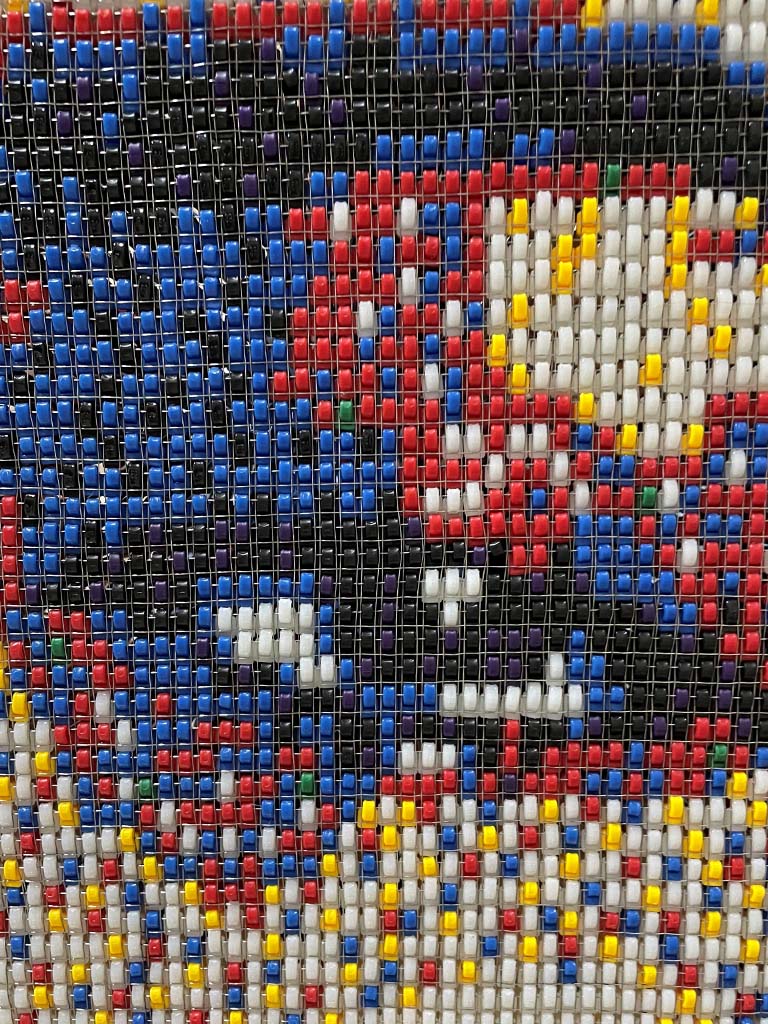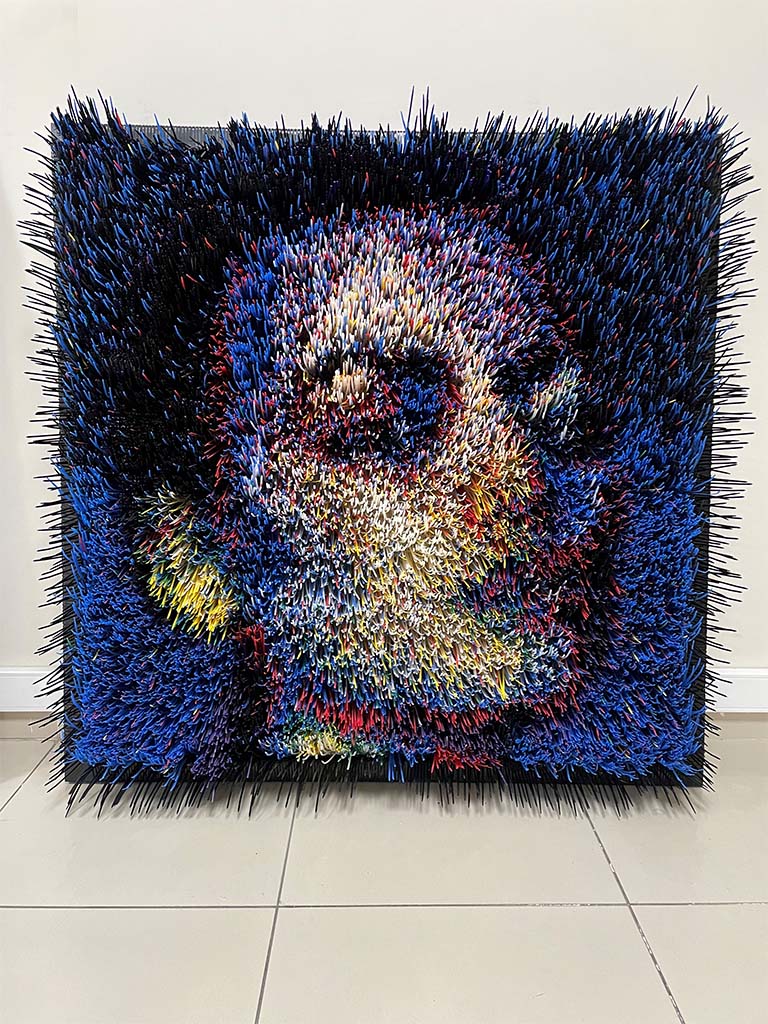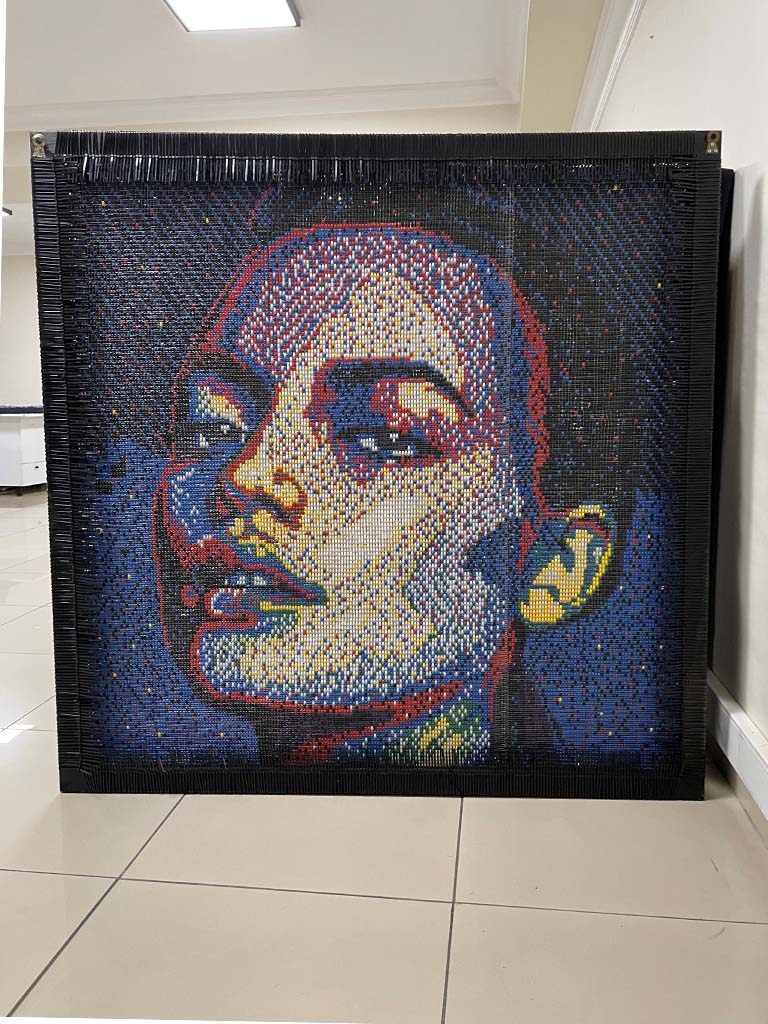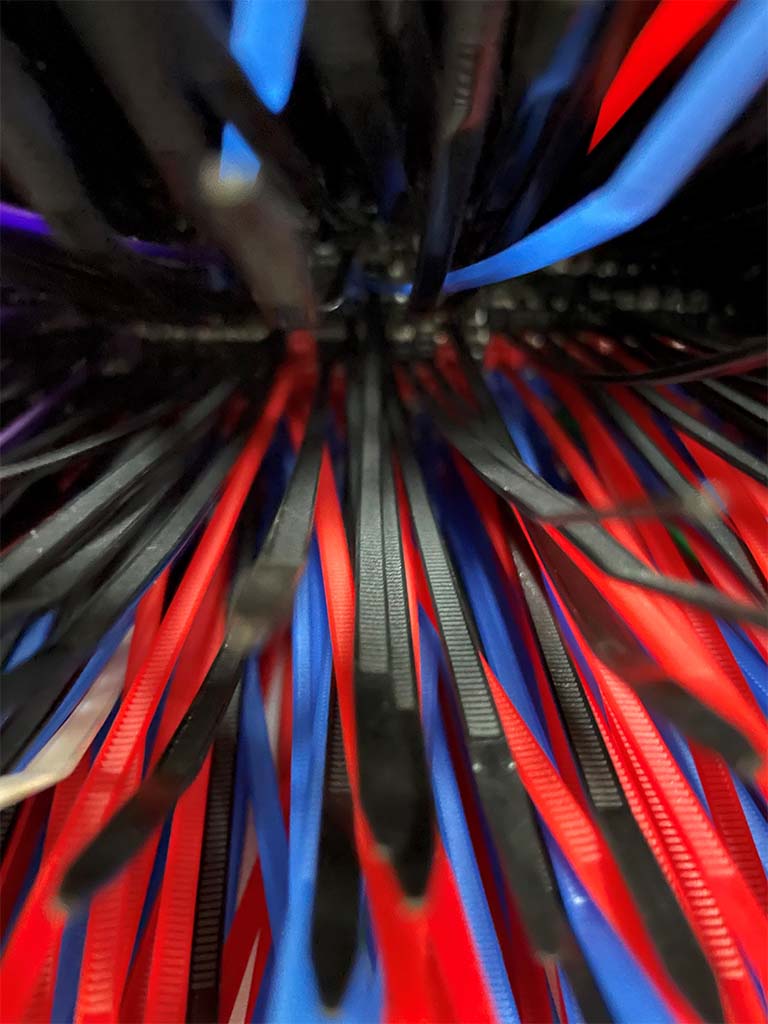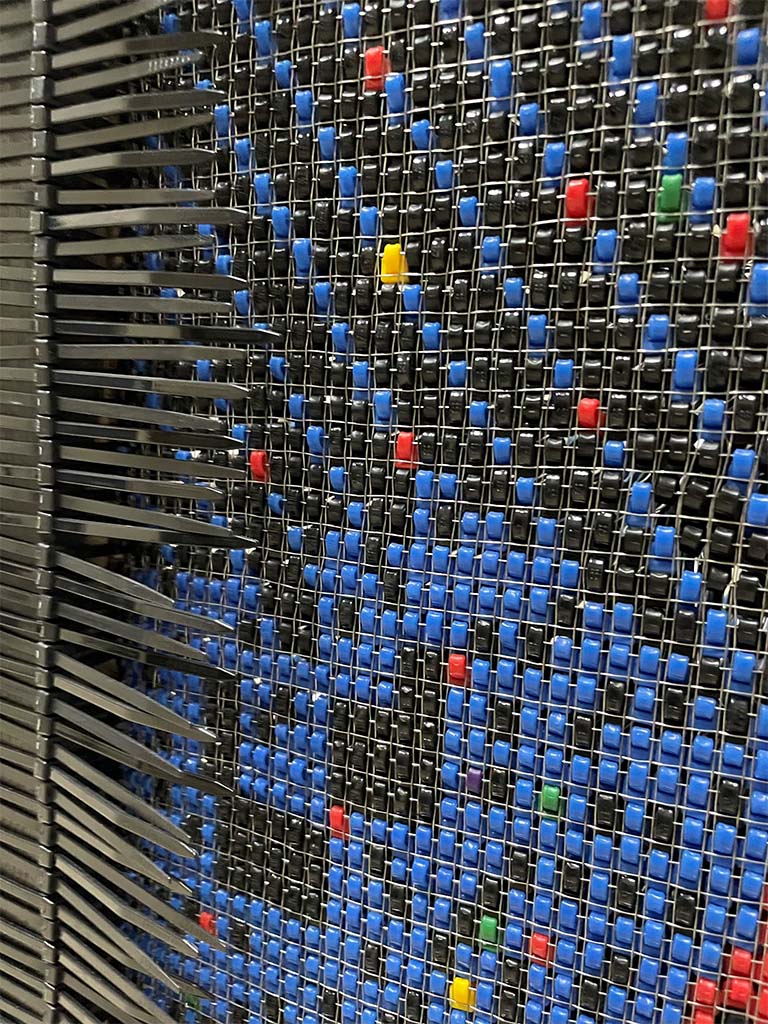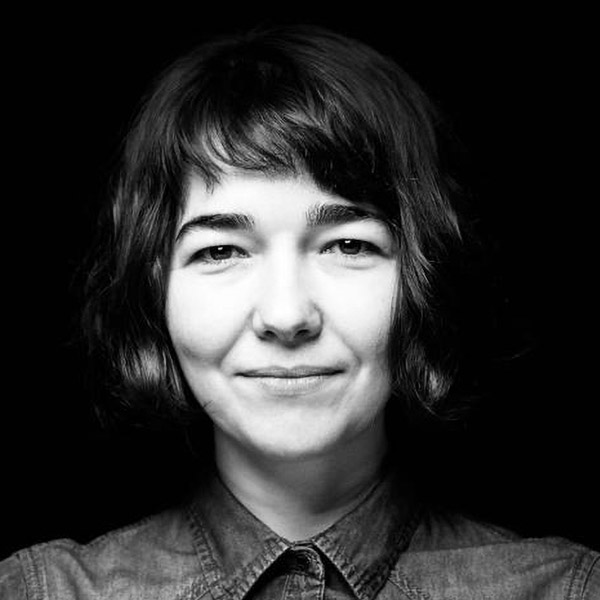
Deniz Sağdıç was born in Mersin in 1982. She started her first artistic works with stained glass works in her family’s glass workshop when she was a child. She graduated from Mersin University, Faculty of Fine Arts, Department of Painting, which she had entitled to study in 1999, with the highest rank in the faculty in 2003. After her graduation, she settled in Istanbul and founded her own workshop. Her unique plastic style, where the forms are almost fluid, and her style, which brings to mind the traditional Ebru art, has become her signature in a short time. Since the first years of her career, she has mastered different techniques such as sculpture, printing and engraving, mainly oil painting and she has also worked in video pro- duction and other new media fields. For many years, she has developed research and projects that problematize the place of women in society, and she received her master’s degree in visual arts with her projects and articles in this field. She carried out studies and collaborations based on women with various non-governmental institutions and organizations. She started her project, which she named “Ready-ReMade”, when the conceptual and classical discussions of contemporary art were at their peak. With this project, she brought together the classical techniques and elements of art with contemporary art forms and thus aimed to open the issue of “concept” in art for discussion. In the current phase of her works, Sağdıç aims to discuss the limits of the concept of “consumption” by recreating all kinds of objects that have lost their function and become waste. Deniz Sağdıç continues her works on “sustainability and art”, as well as conferences and workshops.
Visual artist Deniz Sağdıç transforms all kinds of waste objects and materials into works of art with the “upcycling” method. In this way, the artist, who brings waste to a new life in another form, calls her works “sustainable art”.
In her exhibition project named 0zero Point, Sağdıç’s recent works that she transformed into works of art from wastes of different structures and forms, which are left over from human consumption, are displayed.
With this project, the artist aims to both question the consumption habits of the individual and contribute to the development of awareness on “sustainability” on the basis of indivi- duals and institutions. Sağdıç also has a message that she would like to convey through her work; that is, if it is possible to create works of art with various wastes that are generalized as garbage, everyone can contribute to sustainability in their field of expertise and interest.
According to Sağdıç, the title of the project, 0zero Point, is almost a roadmap rather than a slogan for the realization of nature-friendly living habits. For a nature-friendly life, the in- dividual must first redefine and narrow the boundaries of the concept of consumption. The redrawing of the boundaries depends on the determination of the real needs of the person by returning to their essence. The individual’s visualizing the childhood period in their mind and remembering the simplicity of their needs in this period will make these boundaries exp- licit. Here, the moment when the individual senses this truth is a 0zero Point. Taking a notice of this moment of awareness in the mind of the individual will take them on a new journey in which they internalize a “nature-friendly life”. This journey, like every other journey, will start from a 0zero Point.
The duty to leave a livable world to future generations is a duty imposed on all humanity, not on a specific geography, country or society. So, sustainability necessitates humanity to meet at 0zero Point, invalidating all distinctions. According to Sağdıç, art is the 0zero Point that brings humanity together on common ground. This is because the most effective and easiest way to emphasize this common responsibility of humanity is art, which is the common language of humanity.

